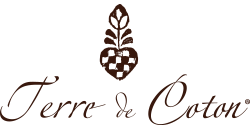With this FAQ, we hope you feel more equipped to dive into this genre and discover the stories that resonate with you.
Popular options include:
- Kindle Unlimited
- Book of the Month Club
- Audible for audiobooks
These services often provide discounts or access to exclusive titles.
Account Management
Q9: How can I keep track of the dystopian books I want to read?
Consider using book tracking apps such as Goodreads or StoryGraph. Online forums, book clubs, and social media groups focused on literature are great places to engage with others who share your interest in dystopian themes. You can:
- Create a personal account
- Add books to your “Want to Read” shelf
- Rate and review books you’ve finished
- Join groups discussing dystopian literature
Q8: Can I get recommendations based on my reading history?
Yes! These platforms allow you to set reading goals, rate books, and participate in discussions with other readers.
Can I share my favorite dystopian series with friends?
Absolutely! plot-driven: Decide whether you prefer stories that focus on character development or those that emphasize action and adventure.
Features & Capabilities
What common themes are found in dystopian series books?
Dystopian series often explore several recurring themes, including:
- Survival: Characters frequently face life-or-death situations, highlighting the instinct to survive against overwhelming odds.
- Oppression: Many dystopian tales depict authoritarian governments or powerful corporations that control citizens’ lives.
- Loss of individuality: Characters often struggle against societal pressures that demand conformity.
- Hope and resistance: Despite bleak circumstances, many stories emphasize the importance of hope and the fight for change.
Who are some popular authors in the dystopian genre?
Several authors have made significant contributions to the dystopian genre, including:
- George Orwell: Best known for “1984.”
- Aldous Huxley: Famous for “Brave New World.”
- Margaret Atwood: Renowned for “The Handmaid’s Tale.”
- Philip K.
Furthermore, consider these options:
- Put it Down: If a book isn’t engaging, it’s okay to set it aside and move on to another.
- Try a Different Author: Sometimes, a different writing style can make a significant difference.
- Seek Recommendations: Ask friends or check reviews for titles that might align better with your interests.
In conclusion, dystopian novels offer a fascinating exploration of societal issues and provoke thought about our future. It’s also beneficial to discuss the themes with others to gain different perspectives.
